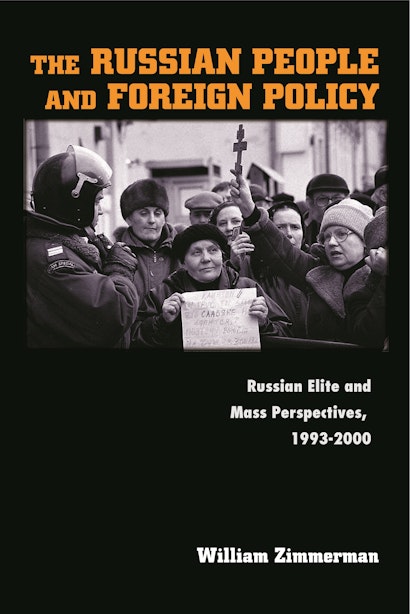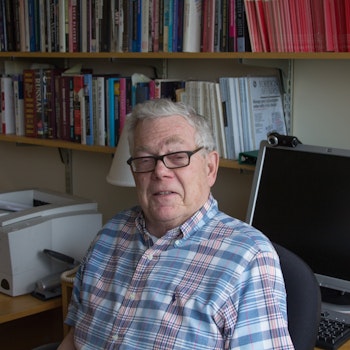Since the fall of communism, public opinion in Russia, including that of a now more diverse elite, has become a substantial factor in that country’s policymaking process. What this opinion might be and how it responds to American actions is the subject of this study. William Zimmerman offers important and sometimes disturbing insight into the thinking of citizens in America’s former Cold War adversary about such matters as NATO expansion. Drawing on nearly a decade of unprecedented surveys he conducted with a wide spectrum of the Russian public, he gauges the impact of Russia’s opening on its foreign policy and how liberal democrats orient themselves to foreign policy. He also shows that insights from the study of American foreign policy are often “portable” to the study of Russian foreign policy attitudes.
As Zimmerman shows, the general public, which had a modest but real role in foreign policy decision making, tended much more toward isolationism than did the predominant elites who steered Russia’s foreign policy in the 1990s. Interspersing smooth prose with a wide array of richly informative tables, the book represents an invaluable opportunity to discern probable shifts in Russian foreign policy that domestic political changes would bring. And it powerfully suggests that the West, by forging its own policies toward Russia with more prudence, can have a say in the outcome of the great choice facing Russia—whether to forge ahead with democracy or slip back into authoritarianism.
William Zimmerman is Professor of Political Science and Director of the Center for Political Studies at the Institute for Social Research at the University of Michigan. He is the author of Open Borders, Nonalignment, and the Political Evolution of Yugoslavia and Soviet Perspectives on International Relations (both Princeton), and Culture and Politics in Yugoslavia. He is also the editor or coeditor of three volumes, including Behavior, Culture, and Conflict in World Politics, Beyond the Soviet Threat, and East-West Relations and the Future of Eastern Europe.
"Zimmerman argues convincingly that the opinions of elite groups have consequences for Russian foreign policy . . . and that elite groups' opinions regarding Russia's political economy have important implications for relations with the West."—Gifford D. Malone, Perspectives on Political Science
"A very significant contribution to the field of Russian studies. There is really nothing like it out there. The book also holds great interest for political scientists who do not work on Russia, as the findings relate to debates that grew out of studies of American public opinion. The author has a track record as a specialist on the communist world whose work has always tested hypotheses drawn from broader theoretical literatures. He has done it again. And done it very well."—George Breslauer, University of California, Berkeley
"First-rate. A brief description cannot do justice to the richness of the data and analyses in The Russian People and Foreign Policy. Moreover, Zimmerman knows the literature on U.S. public opinion and he succeeds admirably in making comparisons where it is appropriate to do so."—Ole R. Holsti, Duke University
"This is an important book for Russianists and those interested in the effects of democratic transition. It presents very rich and interesting data and a really important new source for understanding the changes in Russia through the 1990s. Given the central role of the debate over democracy assistance within the U.S. government and NGO circles, the arguments and evidence it offers will also have appeal to policymakers and others involved in fostering the Russian transition."—Regina Smyth, Pennsylvania State University
"This book is of such high quality that I would not be surprised if its publication will depress future scholarship on the subject for some time to come. The standard it sets is simply too high for others to match."—Micahel McFaul, Stanford University


